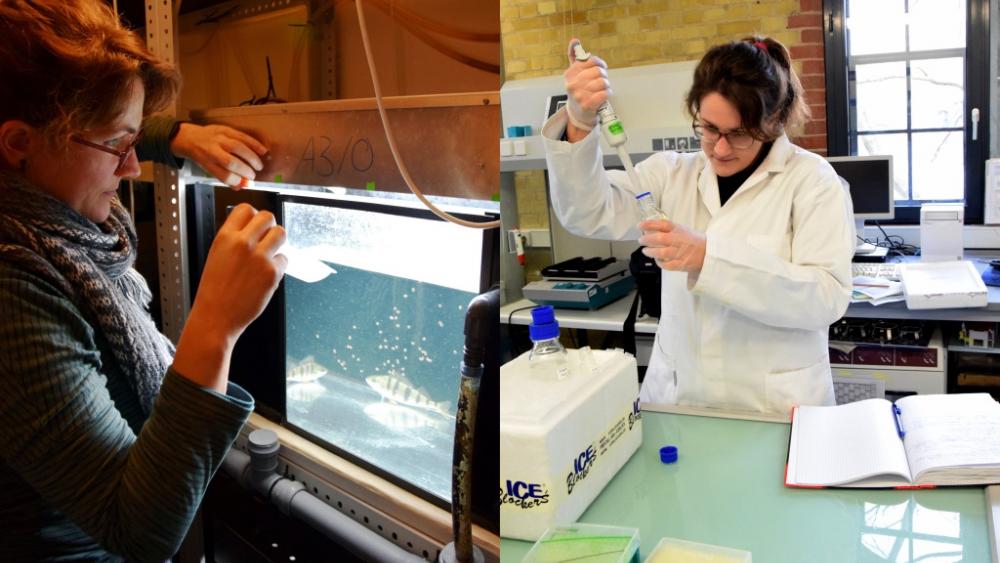
For the experiment, perches were exposed to different light intensities for two weeks (l.) before the concentration of the enzyme lysozyme in the blood of the animals was measured. | Photo: IGB
How does light pollution affect the immune system of fish? Franziska Kupprat investigates this question in her PhD thesis at IGB. "While for mammals and birds a negative effect of nightly light irradiation on immune defense is already known, there are hardly any findings available for fish," explains Kupprat. For the experiment, perches were first exposed to different light intensities at night over two weeks. Currently, Franziska Kupprat measures the concentration of the enzyme lysozyme in the blood of the animals. Lysozyme contributes to the function of the immune system through its antibacterial effect. A low lysozyme activity therefore indicates a weak immune response.
The study is based on the already existing knowledge on the influence of light pollution on aquatic organisms which was gained by IGB scientist Anika Brüning in her PhD thesis.




